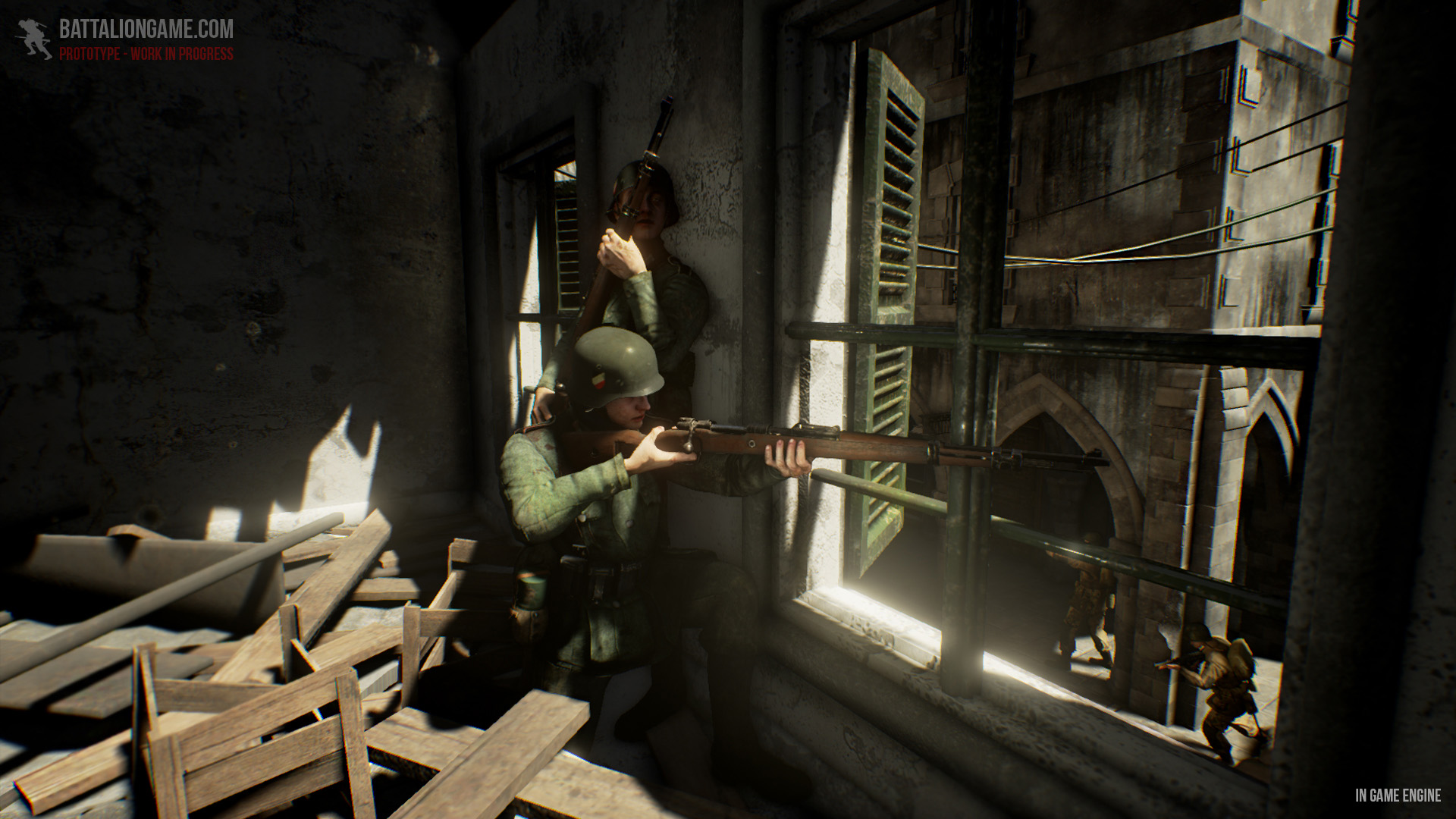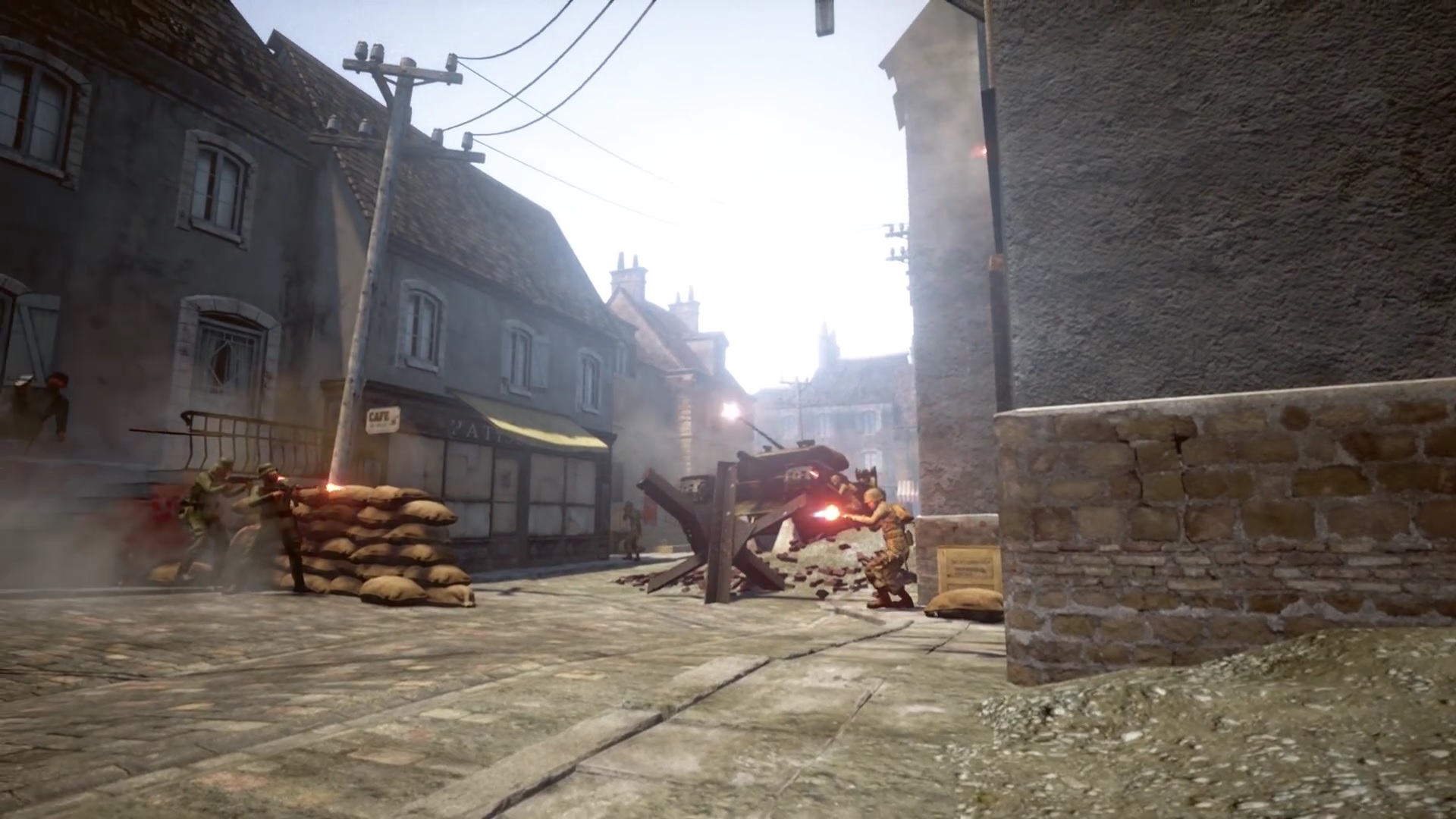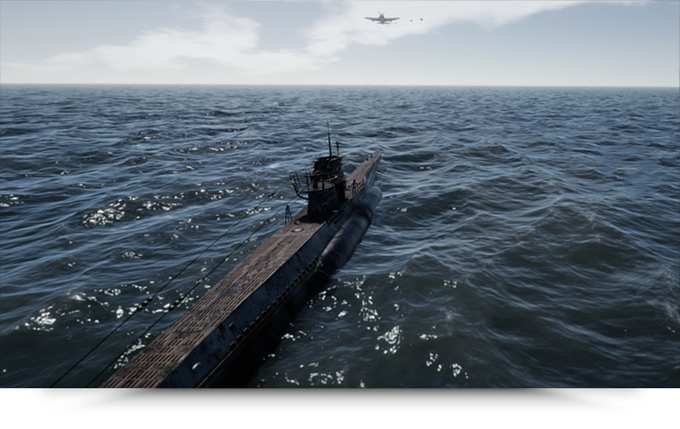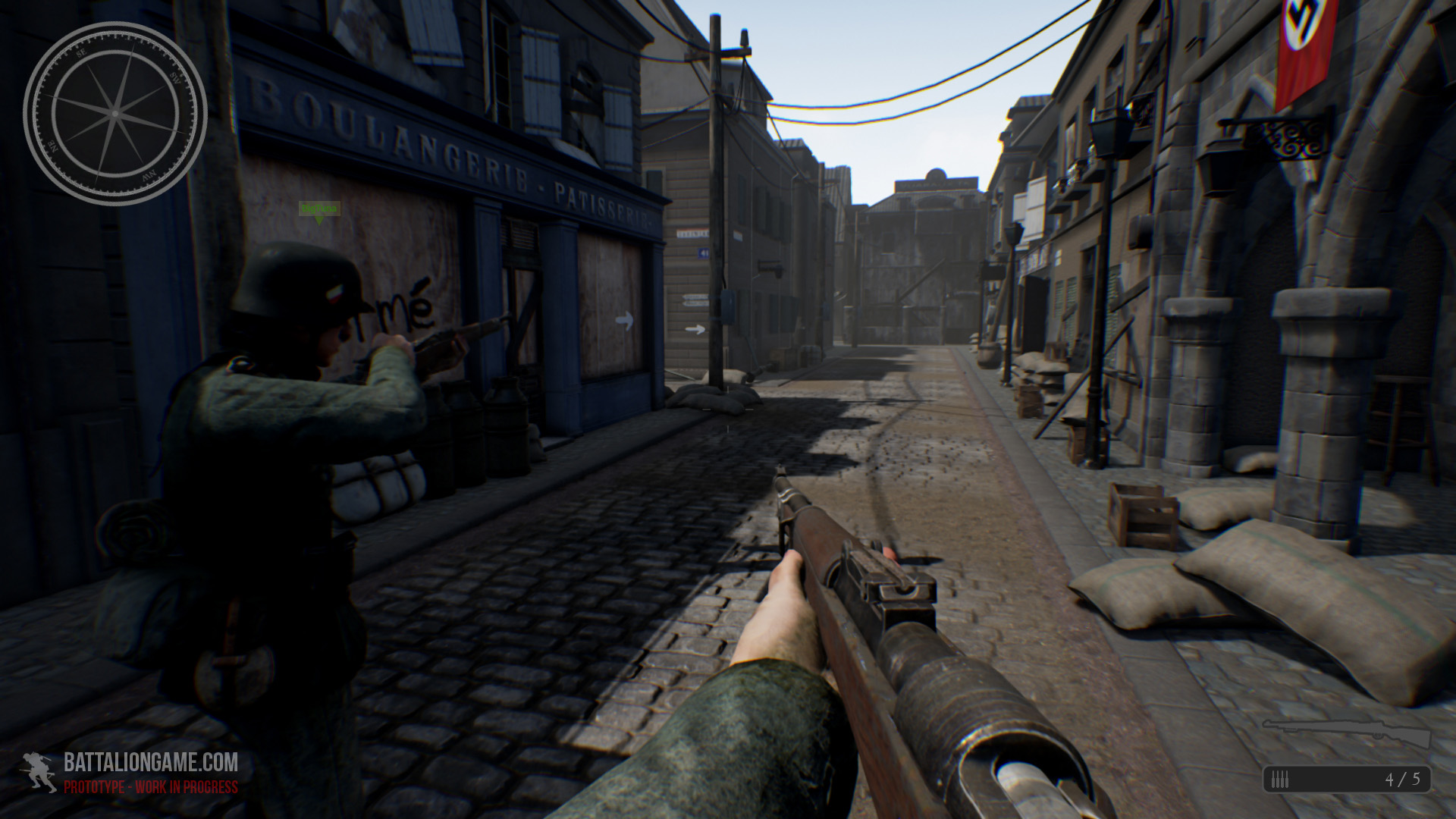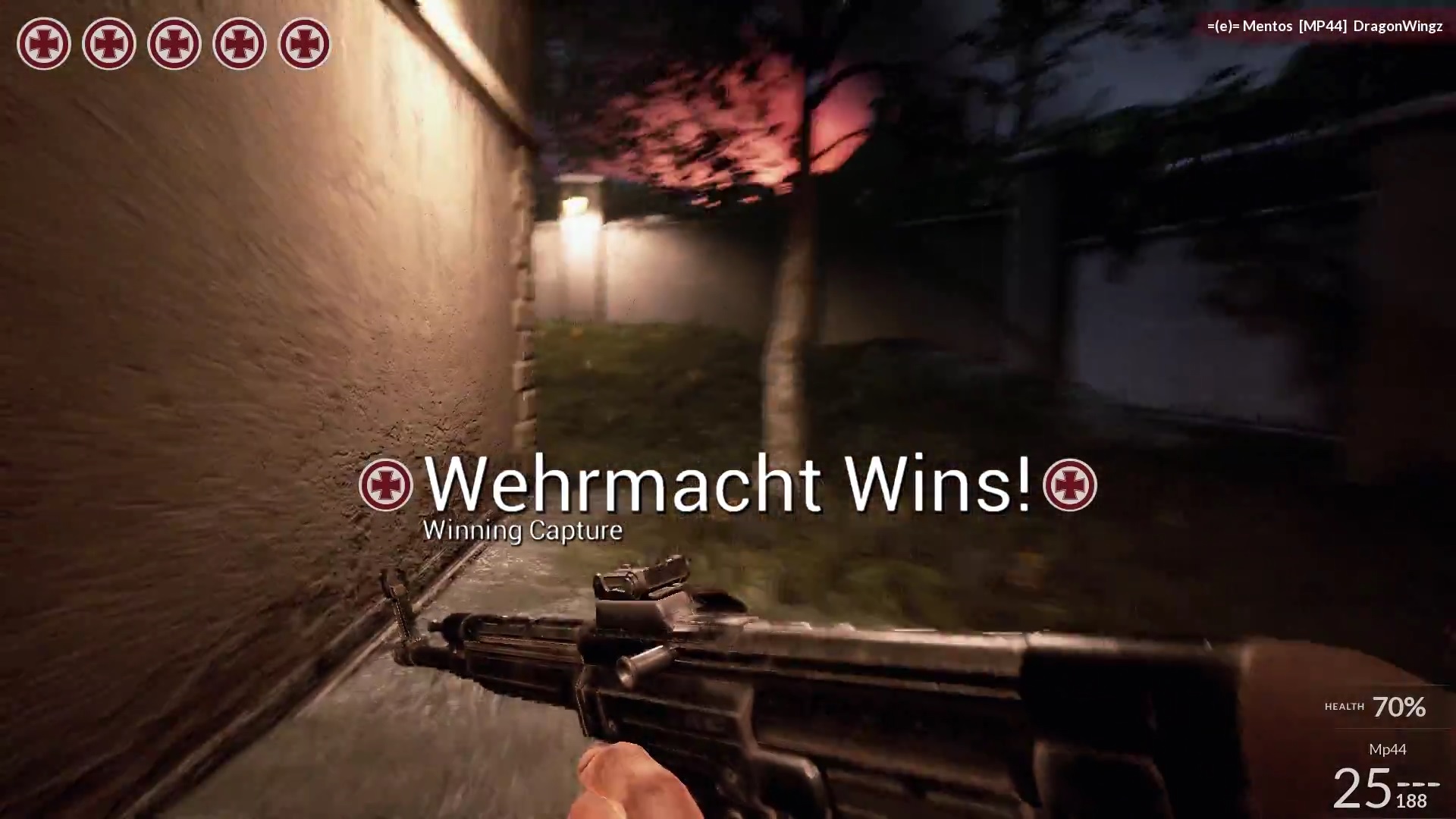Let me start by saying that I love historical, World War-based games. Whether it’s a good old Call of Duty 2 or a more unorthodox and charming Valiant Hearts doesn’t really make a difference – I find the setting to carry an oddly specific and magical essence in all cases. That’s one of the reasons why I’ve been recently looking at crowdfunded games set in WWI and WWII.
The other reason is, well, two games in particular. Both arrived on Kickstarter earlier this year and managed to get successfully funded, despite them being almost identical in terms of their gameplay preconceptions. In addition, both promise to bring back the thrill of shooting your way through dense, tightly-designed maps featuring plenty of corners, detours and cracks to fire your “Kar98k” from.
Can you guess which ones I’m talking about?
Of course, it’s Battalion 1944 and Days of War. (If you didn’t guess – how could you!) Both were also crowdfunded with surprising success, especially in contrast to a previous lack of notable crowdfunded campaigns set in the above mentioned time period (WWI included). Russian-developed flight simulator DCS WWII: Europe 1944 and mobile “basketball in the middle of war” simulator Basket Wars: World at War are perhaps the two most obvious examples of successfully funded ones; on the other hand, failed campaigns fitting the category include Fritz, Sebastian Frank and (still in development) The Breakout.
Apart from these, it’s safe to say that games encompassing the aforementioned time period aren’t exactly popular when it comes to crowdfunding. I’d even go as far as to say those are pretty much the only past campaigns worth mentioning, unless we include the recently funded WWII submarine simulator UBOOT and the even fresher mobile strategy Trenches of War.
No one expected a return to the trenches.
When it comes to Battalion 1944 and Days of War, we’re seeing two games with nearly identical premises flourishing on a platform that hasn’t really seen any similar offerings in the past. Naturally, the crowdfunding success behind both games is a curious phenomenon, not only because they resurrect the classic WWII shooter formula, but also due to of the ease with which they went through Kickstarter. In specific, the former gathered nearly £317,281. Days of War opted for a smaller approach specifically aimed at reaching Steam’s Early Access, and succeeding in amassing $68,508 (after cancelling a previous, more ambitious crowdfunding attempt).
Many will point at Battlefield 1 as the main culprit behind this unexpected success. However, that’s certainly not the case – EA announced the game on May 6th, while Battalion 1944 appeared on Kickstarter on February 2nd, followed soon enough by Days of War on March 15th. True, people knew that a new Battlefield installment was on its way, but no one expected a return to the trenches.
It’s worth mentioning that those exact trenches have also changed quite a lot throughout the years, with the online WWI/WWII shooter evolving into a more expansive one, focusing on infantry-based warfare situated in wide-open maps stripped of any form of vehicular combat. PC titles including Red Orchestra 2 and Verdun are perhaps the most relevant and current examples which utilize this, relying on grand encounters enabled by game modes accommodating up to 64 players.
Yet, the two examples we’re looking at aren’t following such a formula; they’re retreating to the original specifics of the genre, with titles such as Day of Defeat epitomizing most successfully what the classic Axis vs Allies encounter looked like: a game where patience and positioning gave way to fast reactions and smaller-scale team play. Iconic locations such as Carentan would offer their streets to soldiers aiming through balconies and doorways, flinging grenades past buildings and urban ruins with stupendous precision.
A game where patience and positioning gave way to fast reactions and smaller-scale team play.
This design ideology has mostly been in slumber up until now. Crucially, it has created an interesting niche over the years, with old fans of the formula desperately waiting for someone to take on the challenge of waking the sleeping beast once and for all. It is without a surprise, then, that our Kickstarter examples managed to prosper, their funding platform of choice also being of vital importance for their success.
I think most of it has to do with crowdfunding being one of the best ways for financing a game which relies on an old shtick waiting to be revitalized. We’ve seen plenty of those during the platform’s early days, with games like Wasteland 2 and Pillars of Eternity and more recent examples like Shenmue 3 and Bloodstained: Ritual of the Night. I think classic multiplayer WWII shooters are simply another example of a genre, a design amalgamation that still has a big core audience waiting patiently.
These types of games might have fallen out of fashion in the recent past, but the success behind Battalion 1944 and Days of War reinforces crowdfunding’s potential as an enabler to bring back something old and beloved. It would certainly be nigh on impossible to witness a big publisher giving the thumbs up on such a title, unless it carries some awkwardly shoehorned class system with arbitrary power ups. Even then, I’d be surprised if something like that happened.
More importantly, this also hints towards some unrealized crowdfunding potential when it comes to other genres taking a stab at WWI/WWII. Although I’ve focused mostly on shooters, it’s worth mentioning that the setting itself has also been a primary one for numerous strategy games and war simulators released throughout the late ’90s and early-to-mid 2000s. If Kickstarter has the ability to nurture games focused on ideas on the past, then something like a WWII-based RTS can certainly succeed in a fashion similar to a submarine simulator like UBOOT.
As it stands, the time period itself holds plenty of iconic examples set in other genres, all with cult followings waiting to support a developer daring to go back in time. And while most publishers might not be too keen on making games set in such a historical context anymore, the success of Battalion 1944 and Days of War certainly shows a niche waiting to be filled once again.
